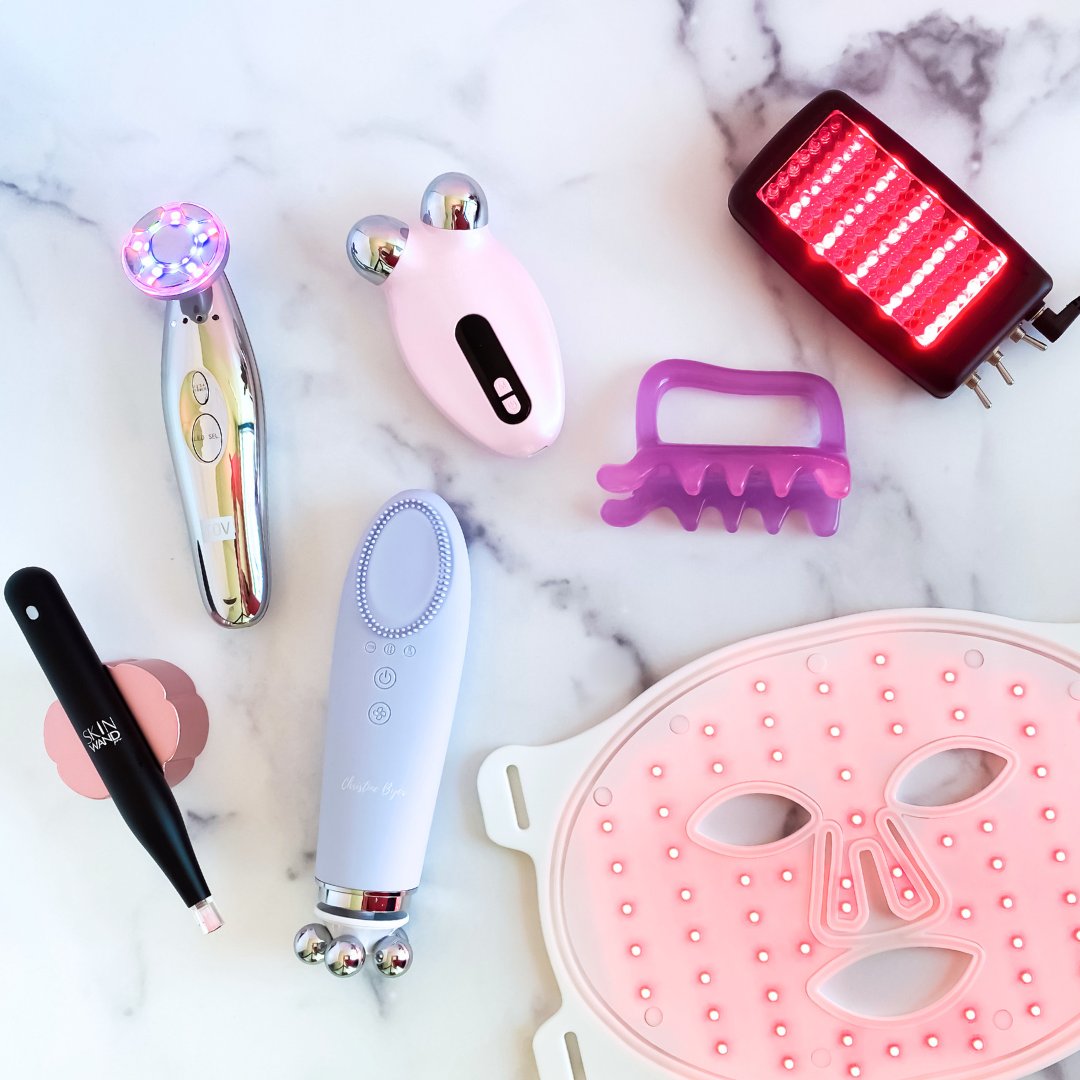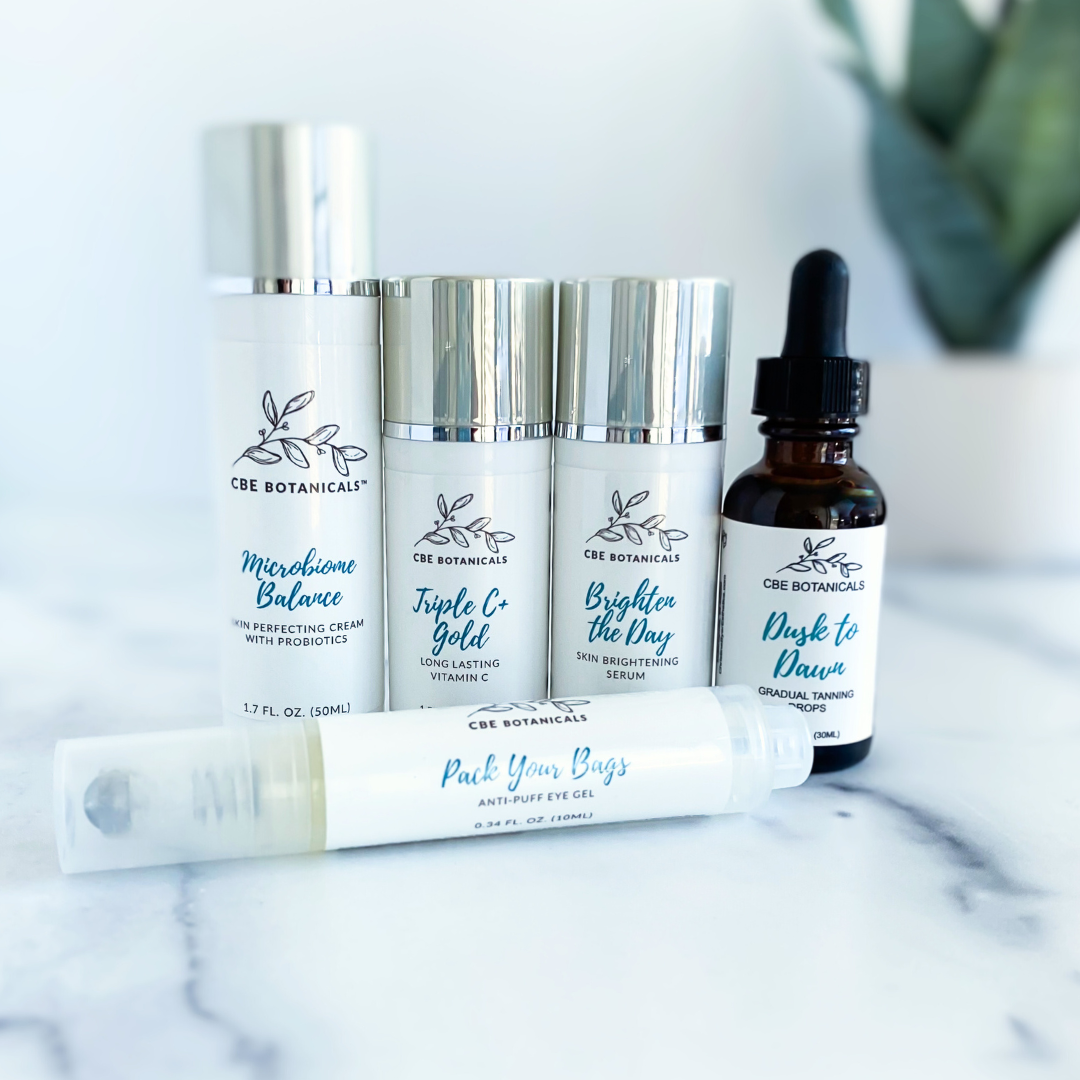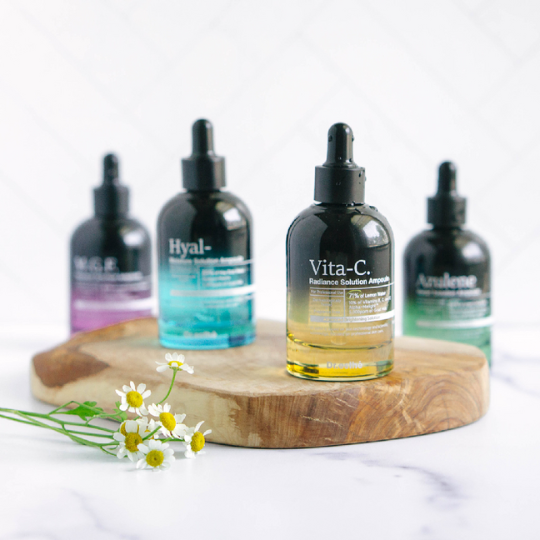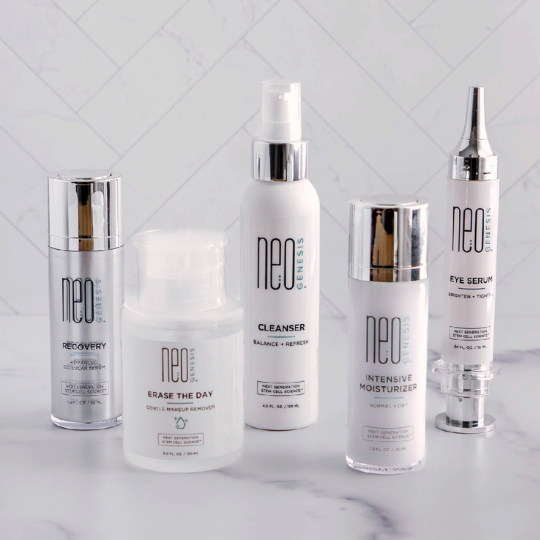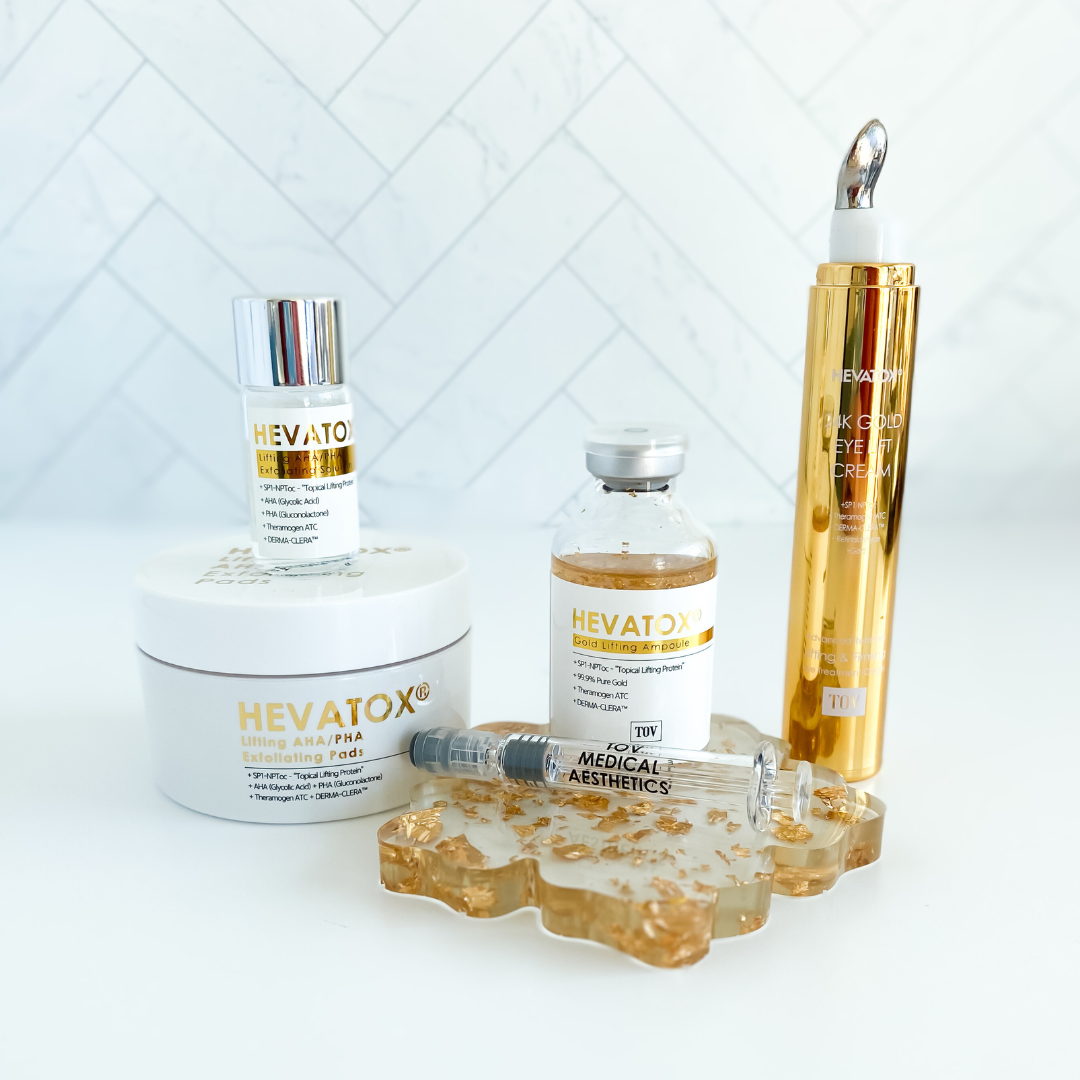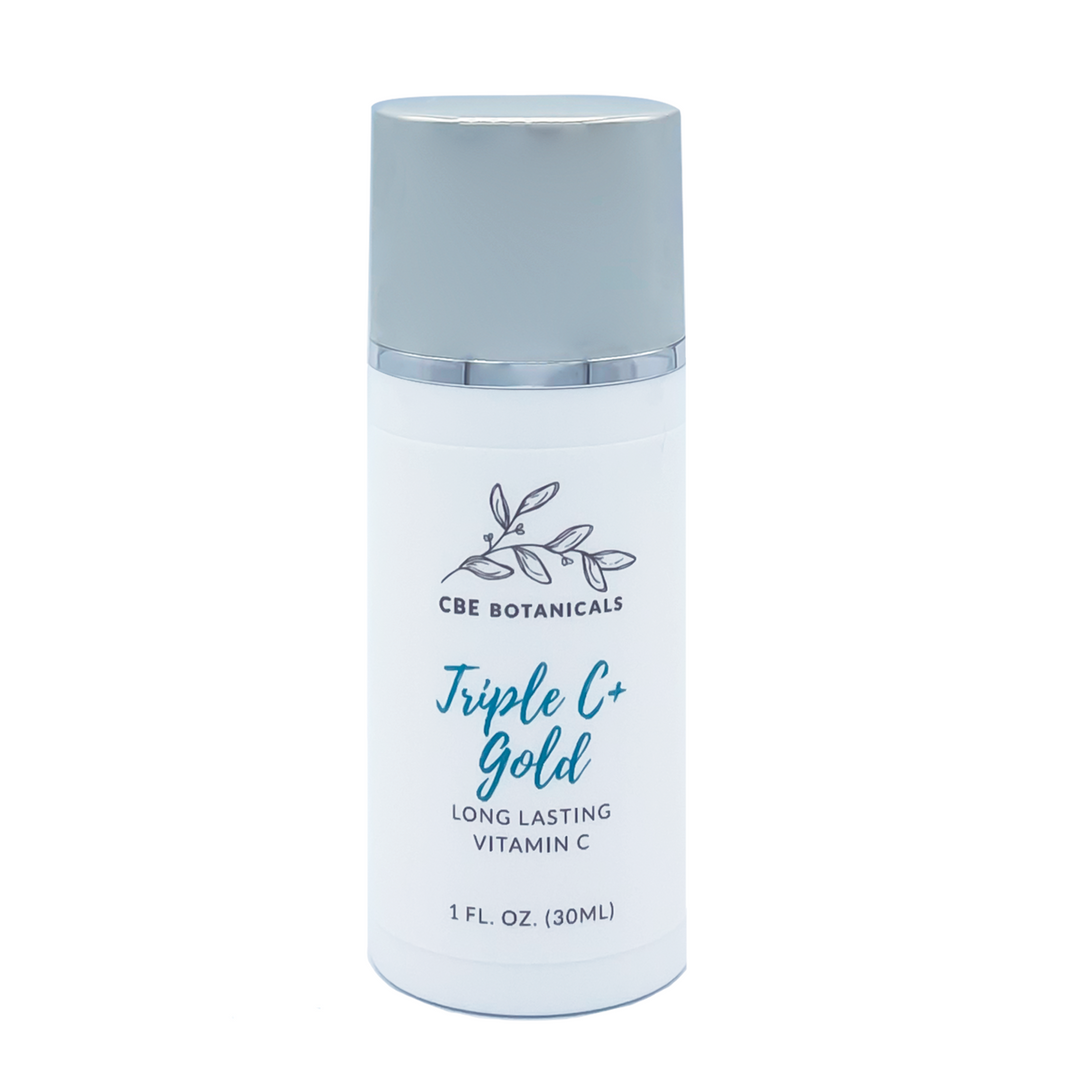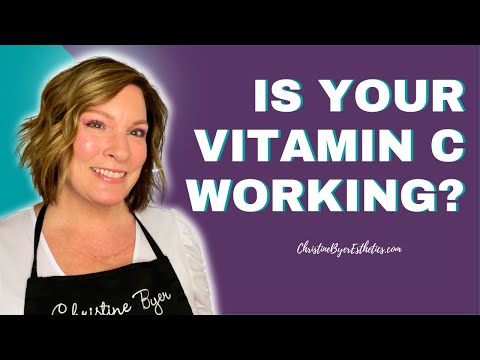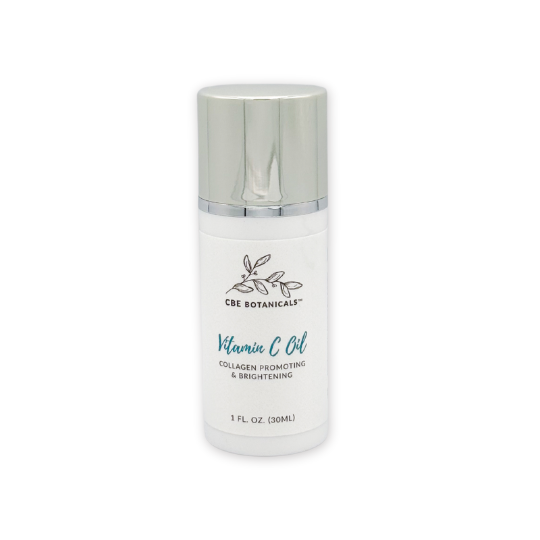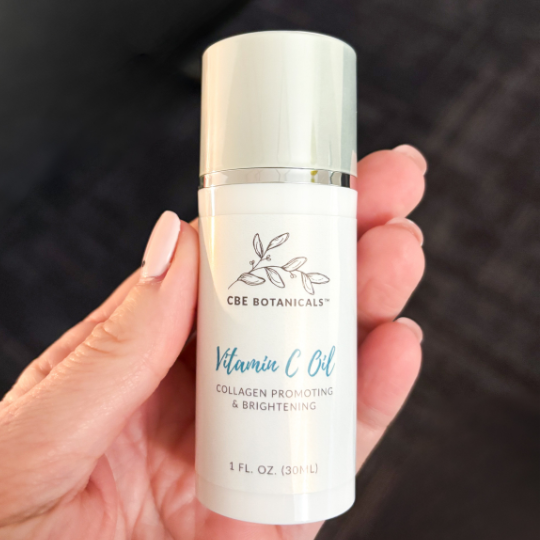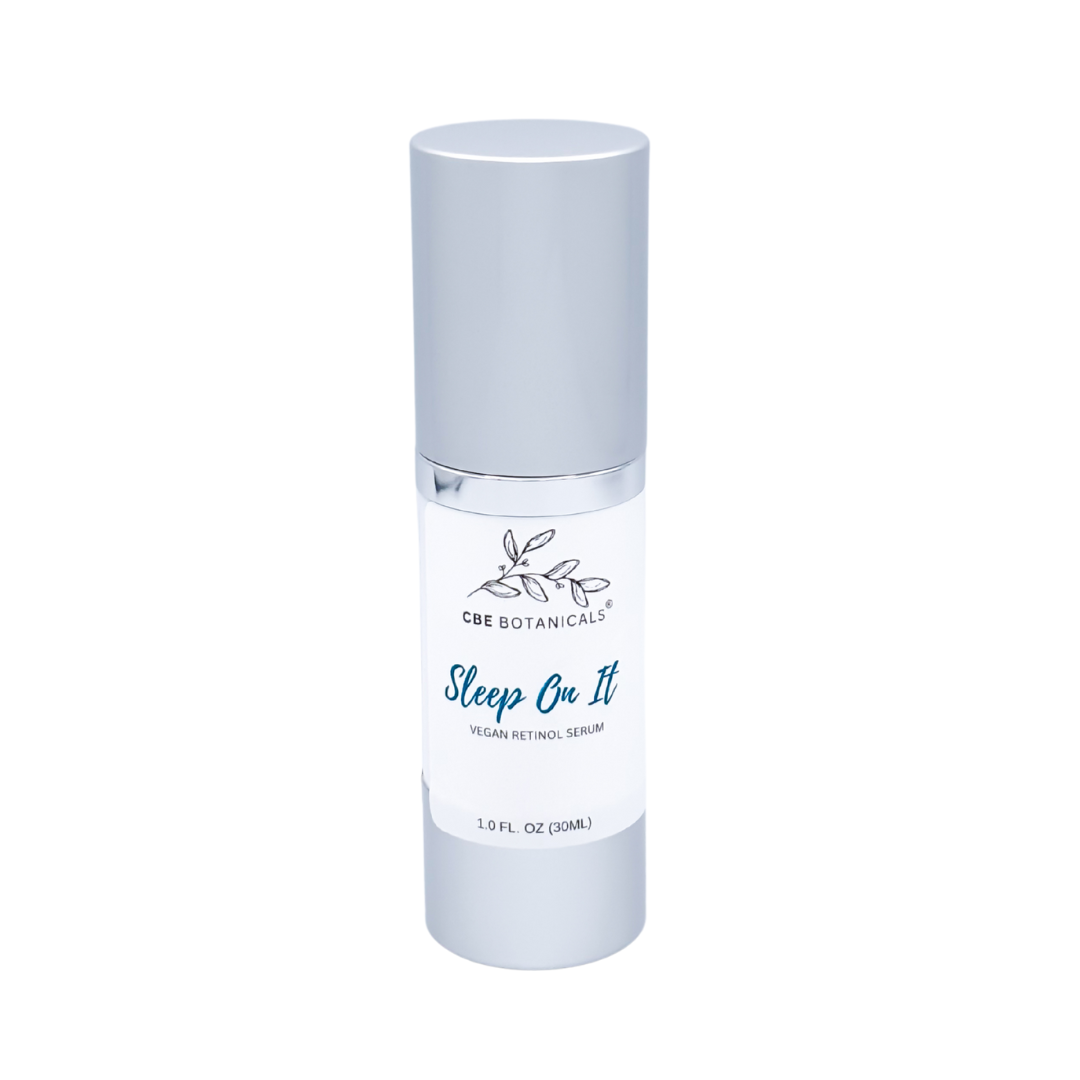Don't use another Vitamin C product until you read this article. Many are getting negative results with Vitamin C or accidentally misusing their Vitamin C product. After you learn what's in this article, you'll know how to use it safely and you will get better results.
Why Most Vitamin C Products Fail You — And How to Avoid the Pitfalls
Vitamin C has long been known to protect the skin barrier with its anti-oxidant

properties, its ability to promote collagen synthesis, and reduce melanin production that leads to dark spots. However, it is one of the most volatile skincare ingredients.
If you use a Vitamin C product that has oxidized it can have a negative effect on your skin. Oxidized Vitamin C can actually help free radicals (instead of protect against them) and lead to a weakened skin barrier. This makes skin vulnerable to a host of unhealthy conditions.
In order to prevent this from happening, Vitamin C must *not* be exposed to air, light, or repeated, excessive temperature fluctuations. Because Vitamin C is so volatile, it can experience an 80 - 90% decrease in potency within 6 days of opening if these conditions aren't avoided.
This means you must buy Vitamin C in packaging that protects it from light and restricts air as it's being stored and while dispensing to help ensure the ingredients remain stable.
Another consideration for the effective use of Vitamin C is percentage of concentration. A percentage of 10 - 20% is ideal. Less won't produce the desired results and more can lead to skin irritation. An ideal formulation is one that has a the pH of 4 for the best penetration across the stratum corneum. However, this can be too strong for those with sensitive skin. So, if a person with sensitive skin has a reaction to a Vitamin C product, it's a matter of finding one with a little higher pH of 5 - 6.
The Secret to Choosing a Vitamin C Product That Actually Works
To get the most out of a Vitamin C product, it should contain ingredients that support

extending potency and effectiveness. For example, glutathione is a precursor to ascorbic acid, so it regenerates ascorbic acid as it is used up by the skin. This results in an effective delivery system for Vitamin C.
Other ingredients such as Vitamin E, ferulic acid, Vitamin B, and hyaluronic acid also help support the effectiveness of Vitamin C. It's not uncommon to see the additional forms of Vitamin C (Sodium Ascorbyl Phosphate, Magnesium Ascorbyl Phosphate, Sodium Ascorbate, Calcium Ascorbate, and Ascorbyl Palmitate) in the ingredient list of a Vitamin C product. These additional forms are from mineral salts that convert to ascorbic acid once applied. They are much less potent and therefore mildly effective but are found to be better tolerated by those with sensitive skin.

My favorite Vitamin C product for all of the above reasons is CBE Botanicals Triple C + Gold. The source of Vitamin C is from the Kakadu Plum which is the richest source of Vitamin C. The glutathione and gold act as supporting anti-oxidants helping Vitamin C reach the lower levels of the dermis protecting new cells and therefore supporting collagen production. It comes packaged in an opaque, airless pump further ensuring it maintains 100% potency to the last drop.
A stable Vitamin C product can be used daily and should be part of your skincare routine for healthy skin and age management plan.
Frequently Asked Questions
1. Can I use Vitamin C with other active ingredients like retinol or niacinamide?
Vitamin C can be safely combined with certain actives, but it depends on your skin type and the formulations. For example, Vitamin C and niacinamide can be used together if well-formulated, but using Vitamin C and retinol at the same time may cause irritation for sensitive skin. It's often best to use Vitamin C in the morning and retinol at night.
2. When is the best time to apply Vitamin C serum?
The best time to apply Vitamin C is in the morning after cleansing and before sunscreen. This helps protect your skin from free radicals and environmental damage throughout the day. Just be sure to apply it on clean, dry skin and follow up with SPF for best results.
3. How can I tell if my Vitamin C serum has gone bad?
If your Vitamin C serum changes color (especially turning brown or dark orange), smells metallic or sour, or causes unexpected irritation, it may have oxidized and lost potency. Always check the expiration date, store it in a cool, dark place, and choose airless packaging when possible to help prolong its shelf life.
Want to get support with your skincare journey?
Join us at the Christine Byer Beauty Club. We offer a 14-Day FREE Preview with full access to everything in the Club. Ask Christine questions and have access to savings and the opportunity to win a FREE consultation. If you don’t find value in your membership, cancel within the 14 days at no charge.


